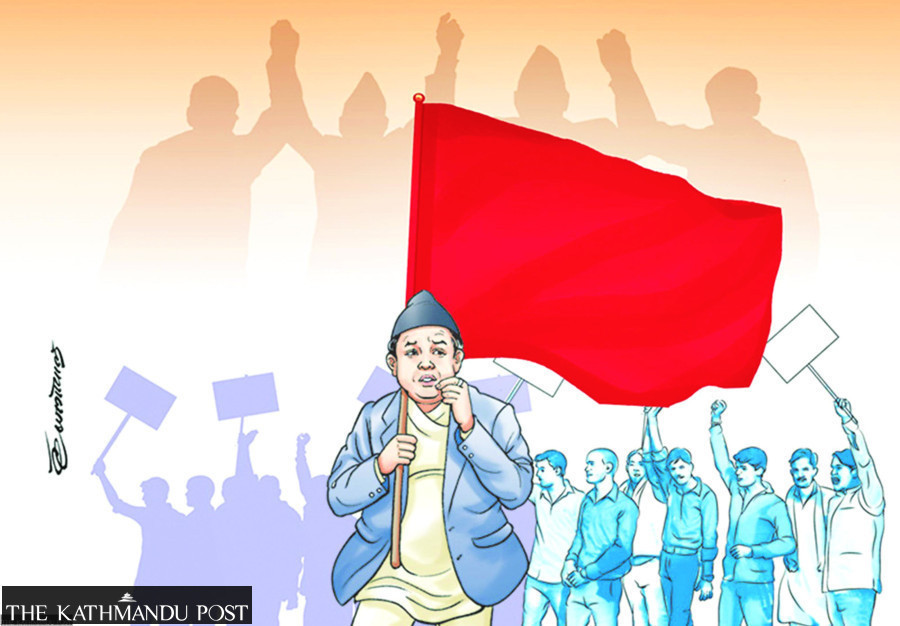Politics
Code of conduct comes into force for December 1 local by-elections
The set of restrictions takes effect starting today, the nomination day.
Post Report
The Election Commission, starting Sunday, has enforced the code of conduct for the by-elections in various local units, which will take place in two weeks.
With the code in force, relevant individuals from the federal government, political parties and non-government agencies, and voters must abide by the restrictions placed by the Elections Code of Conduct, 2022 to curb any act of influencing the elections.
Though the code of conduct will be implemented in the districts where elections are taking place, the commission’s permission is necessary to carry out the activities restricted by the code even in the districts where campaigning is not happening.
The code of conduct’s implementation commences from the nomination day, Nita Pokharel Aryal, spokesperson for the commission, told the Post. The nominations for the vacant positions will be made on Sunday. The election code lists dozens of do’s and don’ts for the election period specific to respective stakeholders.
The code bans the production, distribution and demonstration of symbolic materials such as jackets, shirts, vests, T-shirts, caps, towels, masks, lockets or the wearing or sticker, logo, bag, batch and tattoo showing the election symbol of a political party or candidate.
The political parties, their sister organisations and the candidates are required to conduct rallies, gatherings, meetings, corner meetings, and election publicity in a civilised and disciplined manner. However, the code bars those attending election rallies or mass meetings from wearing any materials showing the election symbol of any party. Political parties have expedited preparations for the by-elections scheduled for next month in various local units.
Political parties, however, are allowed to carry out publicity through their private or official online pages of their principles, thoughts, commitments, and actions.
The by-elections will be held on December 1 for 44 vacant positions, ranging from the district coordination committee chiefs to the ward chairpersons. Nominations can be filed during the office hours on Sunday and the list of candidates will be published by 6 pm the same day, according to Aryal.
Anyone who has an objection to the candidacy of any contestant can lodge a complaint the next day. Similarly, candidates will be allowed to withdraw their candidacies, if they so wish, by 1 pm on October 20.
The final list of candidates for all the vacant positions will be published the same day while the poll symbols too will be allotted between 3 pm and 5 pm that day.
As many as 25 parties including the fourth-largest Rastriya Swatantra Party, which was formed after the 2022 local elections, too is contesting the bypolls.
Citizens from various local units will vote for two district coordination committee chiefs, chairpersons of two rural municipalities, four vice-chairs, one mayor, one deputy mayor and chairs of 34 wards. Chiefs of the district coordination committees in Okhaldhunga and Kailali, the mayor of Kirtipur Municipality in Kathmandu, and the deputy mayor of Nalagad Municipality in Jajarkot are among those to be elected from the by-polls.
Polls will also be held to elect chairpersons of Gramthan Rural Municipality in Morang and Mahabu Rural Municipality in Dailekh, and vice-chairs of Gaurishankar Rural Municipality in Dolakha, Sarkegad Rural Municipality in Humla and Swamikartik Khapar Rural Municipality in Bajura.
Additionally, elections will take place for ward chair positions in various local units including in Kathmandu Metropolitan City and Kirtipur Municipality.
The Local Level Election Act, 2016 envisions by-elections to fill vacant positions such as district coordination committee heads, deputy-heads, rural municipality chairs, vice-chairs, mayors, deputy mayors, and ward chairs if their term has not expired and has more than a year left to serve. Since the representatives holding these (now vacant) positions were elected on May 13, 2022, just a half of their terms has been over.
According to the Election Commission, the mayoral and deputy mayoral candidates can spend a maximum of Rs450,000, rural municipality chairs and vice-chairs are allowed to spend up to Rs350,000 while the aspirants for the district coordination committee chief and deputy can spend up to Rs50,000 each.
The maximum amount a candidate for metropolitan city ward chairs can spend is Rs300,000, while the ceiling for the ward chairpersons of the municipality and rural municipality is Rs200,000 and Rs150,000, respectively.
The commission has permitted only women to contest the four vacant vice-chairperson positions. The commission has decided that only women can be candidates from political parties as all the chairpersons of those rural municipalities are men.




 18.12°C Kathmandu
18.12°C Kathmandu













